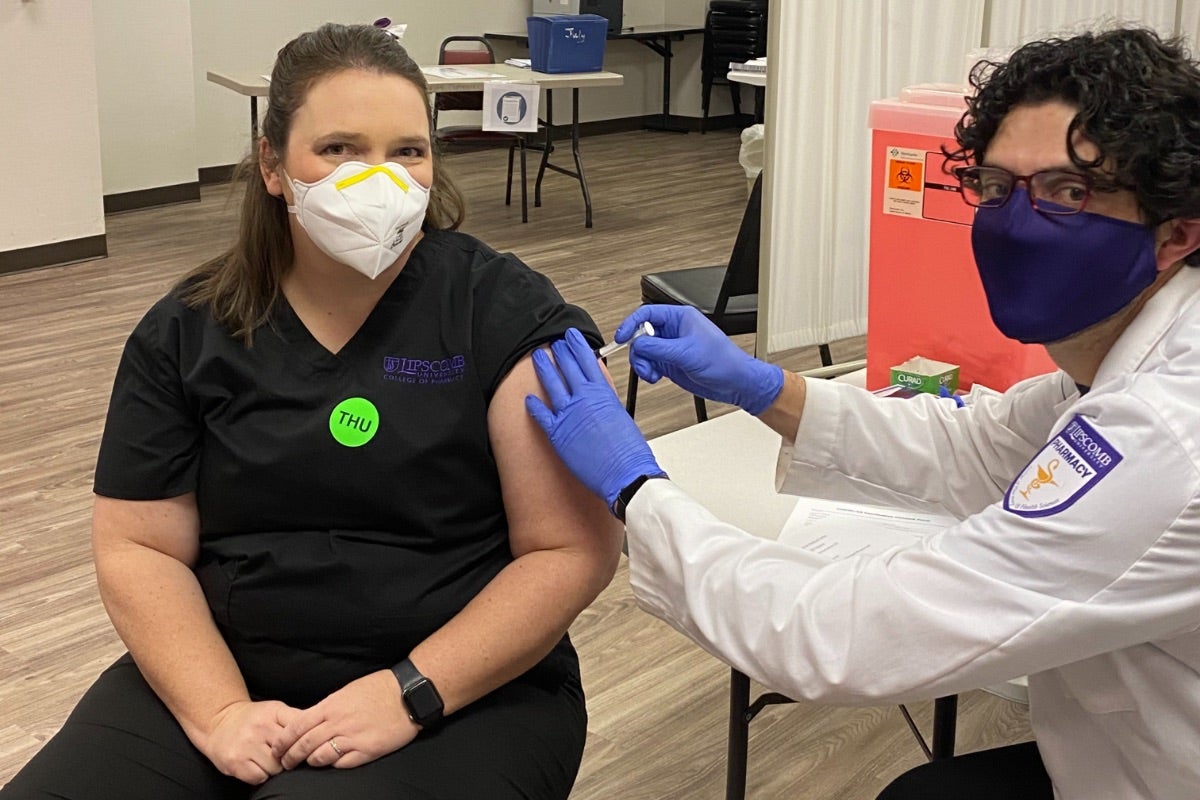I Have a Few More Questions
April 29, 2021

A few weeks ago, I published the first of two articles concerning the safety of the newly-developed COVID-19 vaccine. I spoke with several members of our faculty here at the college of pharmacy, asking questions the general public might have about the vaccination and the effect it might have on them. There was a consensus among the answers I received: yes, those who are eligible should receive the vaccine as soon as it is available to them. Choosing to get the vaccine is a proven, safe way of slowing the spread of COVID-19. We can eventually reach herd immunity, which becomes possible when the majority of the population is vaccinated, but that does not mean individuals should forgo the vaccine.
In this week’s article, our professors answer four post-vaccination questions. They will discuss what can we expect after receiving the vaccine and if our lives can return to the way they were before. Hopefully, this can be informative as you decide whether or not to get the vaccine.
What would prevent someone from getting the vaccine?
“There are very few absolute contraindications. You would be recommended to consult your primary care provider if you have a history of anaphylaxis to any component of the vaccines. You should also wait to receive the COVID vaccine for at least 14 days after receiving any other vaccines or up to 90 days if you have tested positive for COVID. There are some situations in which patients would need to consult their specialist provider to inquire about receiving the vaccine (i.e. if you are receiving chemotherapy or other immunosuppressants).” – Justin Kirby, Pharm.D.
“Overall, the vaccines are safe and effective, but that doesn’t mean that every patient should receive them or will experience no adverse effects from the vaccines. If someone has questions as to whether or not they’re a candidate for the vaccine, I would recommend that they talk with their pharmacist or physician.” – Tom Campbell, Pharm.D.
Can I legally be prevented from attending an event if I'm not vaccinated?
“'Legal' is a tricky word. Any private entity is within their rights to develop a policy that can restrict your access to their events, but with that being said, it is unlikely that there can be any legal mandate for these vaccines prior to them receiving full FDA approval (they currently have an emergency use authorization).” – Justin Kirby, Pharm.D.

Dr. Sarah Uroza receives the COVID-19 vaccine from Dr. Justin Kirby.
I'm fully vaccinated, can I go back to living normally?
“Individuals who get the COVID-19 vaccination still need to practice infection prevention precautions. Keep your mask on, and continue staying at least 6 feet from people outside your household, until further notice. Vaccines do not stop the coronavirus from entering your body; they only prevent you from developing moderate to severe COVID-19. It’s not yet clear if people vaccinated for COVID-19 can still carry and transmit the virus, even when they themselves don’t get sick.” – Kevin Eidson, Pharm.D.
I've seen a few articles on social media about people having adverse effects, and even dying, after receiving the vaccine. What if something happens to me when I get it?
“The COVID-19 vaccine can have side effects, but the vast majority are very short term —not serious or dangerous. The vaccine developers report that some people experience pain where they were injected; body aches; headaches or fever, lasting for a day or two. These are signs that the vaccine is working to stimulate your immune system. If symptoms persist beyond two days, you should call your doctor.” – Kevin Eidson, Pharm.D.
“As with surgery, driving a car, or taking an antibiotic, there is always risk. Thankfully, these events are extremely rare and workers at the vaccine sites have been trained to spot and intervene in these instances. Even for healthy individuals, your chance of dying from COVID-19 is much higher than dying from the vaccine. Also, please don’t get your medical advice from social media.” – Nate Daniels, Ph.D.
Based on these answers, I believe we can safely assume that receiving one of the three available COVID-19 vaccines is in the public’s best interest. Preventing more deaths and slowing the spread (and finally being able to take off our masks) can happen if we all work together. In last week’s article, Dr. Daniels described herd immunity as “when enough of a population is vaccinated that if one person gets infected, they have a low chance of spreading it to other individuals within that population.” Let’s strive to be part of that herd; we are Bisons, after all.
Off-Script: All Posts
